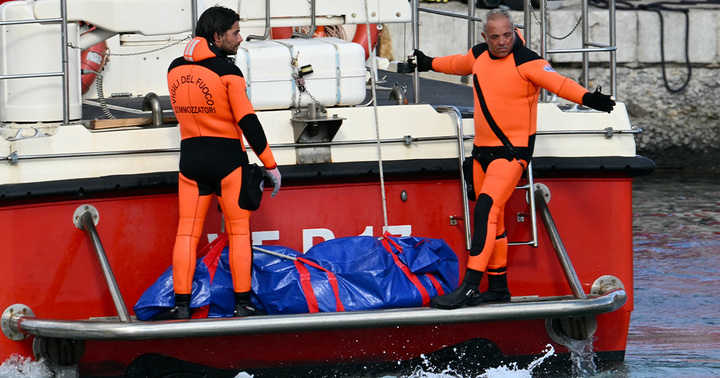
When the superyacht of British tech billionaire Michael Lynch sunk in the Mediterranean Sea recently, killing him and several other people onboard, it came up in the news that the $40 million luxury vessel had an unmistakably nerdy moniker: the Bayesian.
Bayesian reasoning, which uses probability and data and is named after the British mathematician Thomas Bayes, spoke to how Lynch made his vast fortune in machine learning software — and, in all likelihood, to his and other tech denizens’ preoccupation with rationality that verges on the religious.
Bayesian reasoning has become a hot topic to tech leaders like Lynch, who see it as a blueprint to making decisions by examining known probabilities and tweaking prior understandings when new data becomes available. They consider it a more rational method of thinking and a way of reasoning that makes the world less uncertain.
“But the real power of the Bayesian approach isn’t procedural; it’s that it replaces the facts in our minds with probabilities,” wrote New Yorker writer Joshua Rothman in a 2021 article about rational thinking. “Where others might be completely convinced that GMOs are bad, or that Jack is trustworthy, or that the enemy is Eurasia, a Bayesian assigns probabilities to these propositions.”
So it’s plainly ironic when the Bayesian — the boat, not the term — met its watery doom in the face of the unstoppable, irrational force of Mother Nature during an epic storm, leaving a mess of an investigation with too few knowns and a lot of unknowns.
It’s hard not to wonder: did Bayesian reasoning take any part in the decision to take a very expensive yacht into a storm with a crew that may have been grossly unprepared?
Probably not, because Lynch was intent on celebrating his acquittal from fraud charges stemming from selling his business to Hewlett Packard in 2011.
Hear us out: maybe Lynch should have named the boat something else. Talk to any seasoned sailor and you’ll hear that it’s tradition to name boats after women, such as goddesses, to evoke their divine protection during perilous sea voyages.
What you don’t do is name your boat with something arrogant or presumptuous, lest you temp the wrath of the gods.
Tech denizens may think this is totally irrational — anti-Bayesian even — but the proof is in the pudding if you look at Lynch’s fate. Perhaps naming the boat the Bayesian was like waving a red cape at whatever irrational immortal being or amoral force lurks in the dark depths of the Mediterranean.
And herein lies an important lesson that tech bros should heed as they impose their views on larger society. It’s easy to talk about rationality, such as when Tesla CEO Elon Musk sounds off about his views on society and politics. But it’s much harder to be rational, as Musk has learned during his financially disastrous acquisition of Twitter.
That’s not an uncommon fate in the tech world. Silicon Valley’s latest obsession, AI, keeps falsely accusing people of crimes or prompting users to kill themselves — and that’s when it’s not suggesting that users eat rocks and put glue on pizza.
“Clearly, we want people in power to be rational,” Rothman wrote in the New Yorker. “And yet the sense that rationalists are somehow unmoored from direct experience can make the idea of a rationalist with power unsettling. Would such a leader be adrift in a matrix of data, more concerned with tending his map of reality than with the people contained in that reality?”
In that sense, Bayesian the luxury boat is a metaphor: a shiny, expensive and state-of-the-art vessel that served as a symbol of untold wealth and power — until it met a force greater than its own.
More on the tech billionaire Michael Lynch: Billionaire Yacht Was Piloted Recklessly Before Deadly Sinking, Its Builder Warns